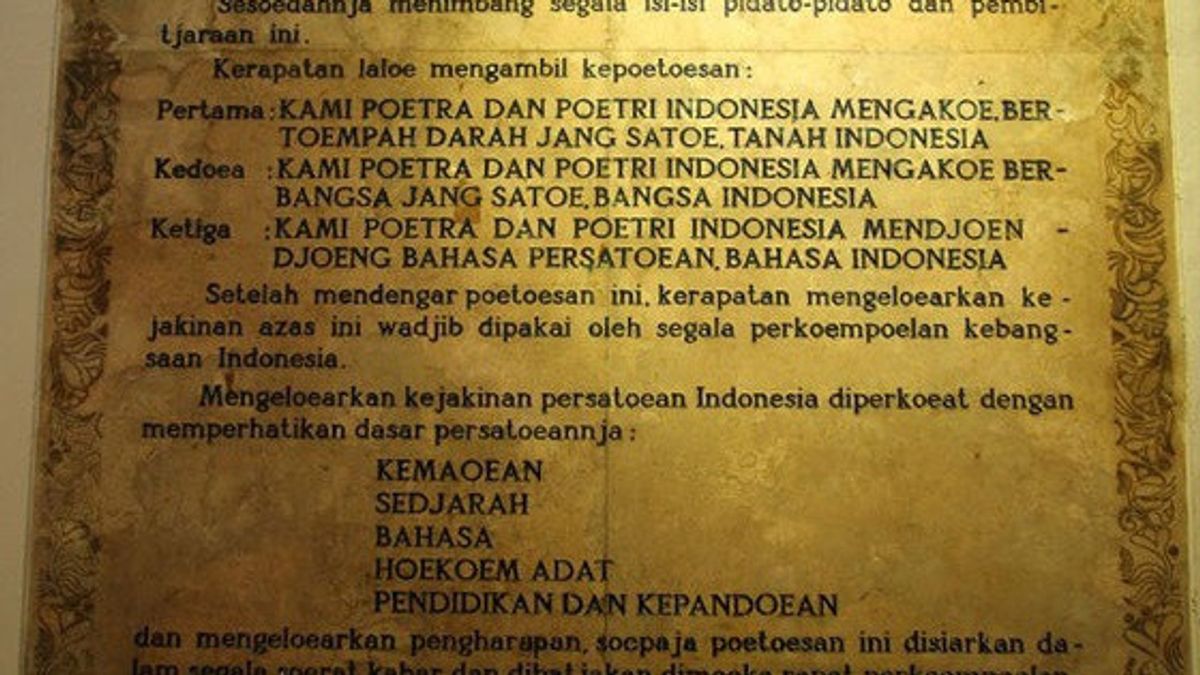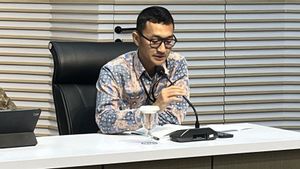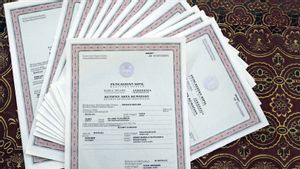JAKARTA - The Indonesian language we use today has a long history. One of its milestones occurred today, January 16, 49 years ago or in 1972. At that time, through Presidential Decree No. 57 of 1972, the government inaugurated the Enhanced Spelling (EYD).
Previously, for decades Indonesia used the Spelling van Ophuijsen or the Old Dutch "inheritance" spell. The spelling name itself is taken from its formulator Charles van Ophuijsen, a Dutch linguist.
In compiling Spelling van Ophuijsen, the professor of Malay at Leiden University in the Netherlands is not alone. As written by Sudaryanto et al in Van Ophuijsen's Spelling (1901-1947) in Tempo Doeloe's Advertisement and Its Meaning in Indonesian Language Development, van Ophuijsen was assisted by Engku Nawawi and Moehammad Taib Soetan Ibrahim. This spelling came into effect in 1901.

The characteristics of van Ophuijsen's spelling include the use of the letter oe to read u, the use of the letter j to read y. Although this spelling has not been enforced for a long time, we can still find this spelling in the names of Indonesians today.
Citing the website of the Ministry of Defense of the Republic of Indonesia, the existing developments resulted in a common spelling concept which was named Spelling Melindo (Malay-Indonesian Spelling). However, plans to formalize this spelling in 1962 failed due to a confrontation between Indonesia and Malaysia.
In 1966, the Language and Literature Institute (LBK) then formed a committee chaired by Anton M. Moeliono to propose a new concept to replace the Melindo concept. After various adjustments and several seminars, finally the LBKA concept became a joint Indonesia-Malaysia concept and became a new system that produced the Enhanced Spelling (EYD).
Until finally on August 16, 1972, the EYD was inaugurated and put into effect. President Soeharto officially announced the new spelling in his State of the Union address on August 16, 1972. In that speech, President Soeharto stated that the use of the new spelling was carried out in stages and did not need to cause additional budget burdens.
EYD is the basis for Indonesian people to speak from childhood to adulthood. Compared to the previous spelling, EYD is so long. However, that does not mean the adjustment stops.

On November 26, 2015, to be exact, on November 26, 2015, the EYD was changed to the General Guidelines for Indonesian Spelling (PUEBI). The reason for changing EYD to PUEBI is because of technological advances and the progress of the times. In addition, the replacement is intended to strengthen the function of the Indonesian language. PUEBI includes the use of letters, the use of words, the use of punctuation marks, and the use of loan words.
Along with the development of the times and the growth of society, many Indonesian languages also come from loanwords. With the absorption of words, the Indonesian language is richer and becomes a source of knowledge.
Several languages that "contribute" loan words to Indonesian dictionaries include Javanese, Chinese, Dutch, Arabic and Portuguese. Examples of loan words are ticket which comes from the Dutch language, namely kaartjes, bench which is an absorption word from Portuguese, namely banco, and the word century which comes from Arabic.
In addition, there are Indonesian terms that previously we only knew English, namely download (donwload) and upload (upload). Citing the Ministry of Education and Culture's Language Agency page, downloading and uploading comes from Javanese. To download means 'to protrude or harvest, usually, the fruit from the stem'; whereas upload means 'to raise something to a higher place'. In other words, downloading means 'to take something down or take something from where it came from' and uploading means 'to raise something from where it came from.'
*Read other information about TODAY's HISTORY or read other interesting articles from Putri Ainur Islam.
TODAY'S HISTORY MoreThe English, Chinese, Japanese, Arabic, and French versions are automatically generated by the AI. So there may still be inaccuracies in translating, please always see Indonesian as our main language. (system supported by DigitalSiber.id)












